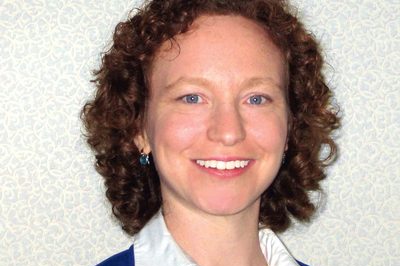Disney Pixar’s new animated feature, “Up,” is a good movie, and better than most children’s fare. My kindergartener and I both enjoyed it — but it left me with a few lingering qualms about its depiction of parenting and gender roles.
The story revolves around 78-year-old Carl Fredricksen, who is determined to see to his deceased wife’s last wish and move their house to an idyllic locale in South America. He does so with the aid of thousands of helium balloons and an accidental stowaway named Russell, a young boy who is working on his Wilderness Explorer “Assisting the Elderly” badge.
The film tackles more serious topics than previous Pixar films have handled. The opening sequence shows Carl and wife-to-be Ellie from their first meeting as children through their falling in love, getting married and growing old together. It is a perfect balance of humor and pathos. The couple’s struggle and ultimate failure to have children will touch people of all orientations who have gone through this process. Carl’s personal challenge to find meaning in his life after Ellie’s death is a tearjerker of the first order, although it seemed to affect the adults in the audience more than it did the kids. The kids will likely prefer the parts that show Carl and Russell’s adventurous trip to South America, complete with flying house, talking dogs, mysterious birds and fantastical chase scenes.
While the film is a fun romp tempered with a few serious themes, and well deserving of most of its glowing reviews, it still has some obvious flaws. Linda Holmes of NPR has already written about wanting Pixar to make a story with a girl protagonist — one who, unlike her Disney compatriots, is not a princess (www.npr.org/blogs/monkeysee/). Ellie is as spunky and independent and non-princess-y a heroine as one could imagine, but she is seen only in passing and disappears after the opening segment.
I agree with Holmes, but would add to her critique the parental stereotypes perpetrated by the film. Russell’s parents are divorced. He lives with his mother and bemoans the lack of time his dad has to spend with him. Fair enough. What irks me, however, is the scene in which Carl discovers that Russell, for all his Wilderness Explorer training, does not know how to pitch a tent. Carl blames Russell’s dad for not teaching him.
Really? What makes Carl, married to the adventurous zookeeper Ellie for decades, think that Russell’s mom has no idea how to put up a tent? What makes him so sure his dad does? Even though the Pixar writers were able to make Ellie an independent, capable, non-traditional woman, they fall back into gender stereotypes when it comes to what parents teach their kids.
The fact is, many a mom — LGBT or not — can put up a tent or throw a softball. Many, if not most, dads can cook and sew on a button. When one looks at LGBT parents, furthermore, the range of non-gender-typical talents is often even wider. No one can assume a child will or won’t be able to learn certain skills just by looking at the gender of his or her parents.
I would be the last person, however, to say that male role models are unnecessary for my son. Not because my spouse and I can’t teach him to put up a tent, or throw a baseball, or build a birdhouse. What I want male role models for is to show my son the many things it means to be a man. It is less about specific skills — which are, with a few exceptions (e.g., facial shaving), non-gender-specific in this day and age — and more about showing him that someone of his gender can do a wide range of things.
It is even more about the abstract skills — showing him that someone of his gender can be tough, daring and protective, but also nurturing, kind, artistic and much more. It is then up to him to choose how he wants to express his own individual version of manhood.
For children of opposite-sex parents, the father often becomes the primary male role model, and the mother the primary female one. Same-sex or single parents, however, reach out to relatives, friends, teachers, coaches and/or religious leaders, not to mention involved donors, surrogates or birth parents. The few academic studies that have been done on lesbian families, for example, indicate that lesbian moms provide even more male role models, in more diverse ways, than do non-LGBT parents. Even allowing for some margin of error, there seems to be no evidence that children of same-sex parents are missing out on positive role models of the opposite gender as their parents.
Same-sex families are also not the only ones to have to reach out beyond the parents for role models, however, as “Up” indicates — and that is one positive message the movie does convey. Carl even pins on Russell’s new badge when his real father doesn’t show up at the ceremony.
The film thus gives us both a childless opposite-sex couple and a boy whose main male role model is not his father. Although those situations cause the characters some sorrow, Carl, Ellie and Russell each move beyond them and discover happiness in other ways. By breaking the automatic assumptions that a happy marriage equals kids and a happy boy must have an involved biological father, “Up” does push the envelope a bit to show us a few more of the many meanings of family. If Pixar’s next film could do so without the unfortunate lapse into gender stereotypes, it would really have something that rises above.
Dana Rudolph is the founder and publisher of Mombian (www.mombian.com ), a blog and resource directory for LGBT parents.
